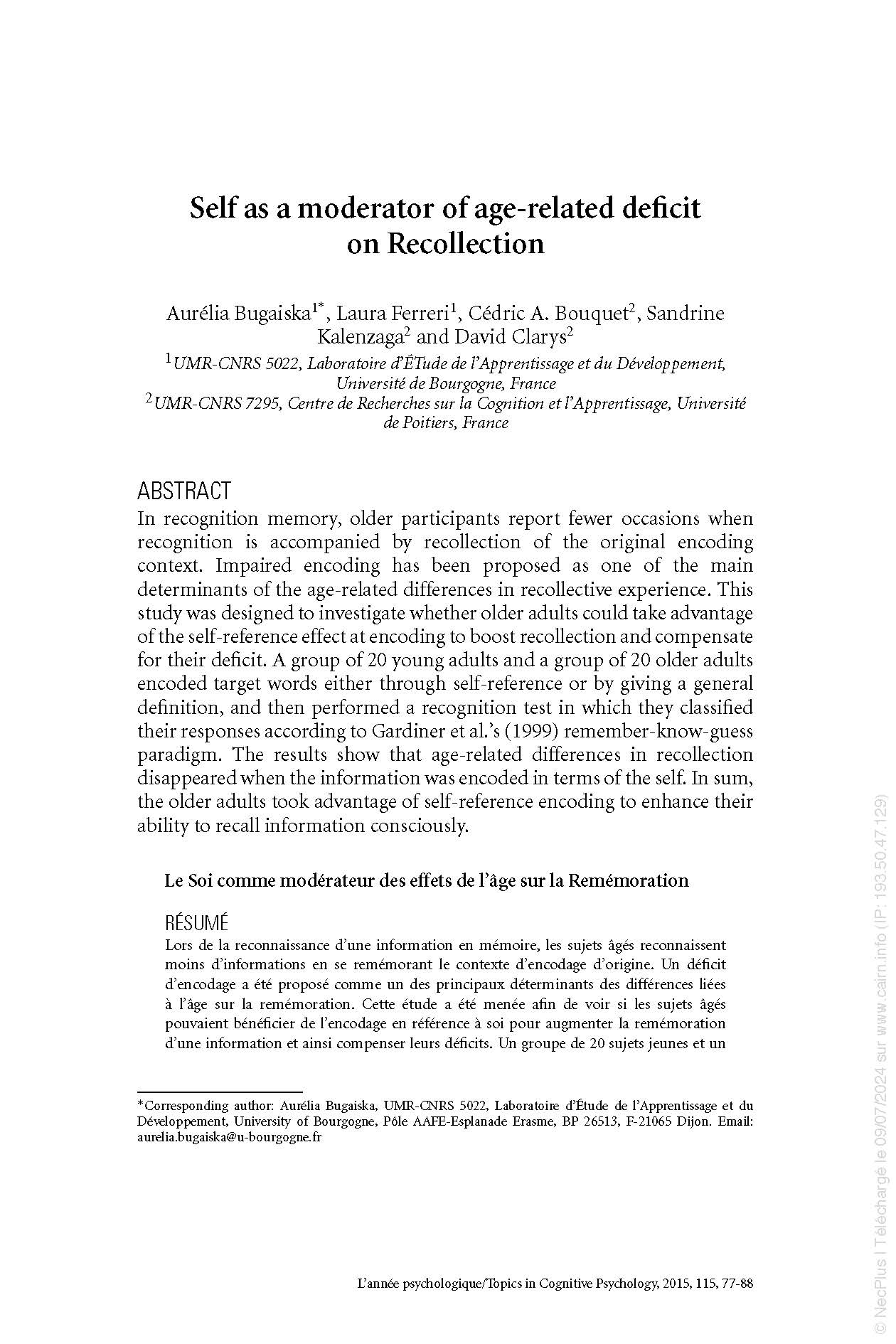In recognition memory, older participants report fewer occasions when recognition is accompanied by recollection of the original encoding context. Impaired encoding has been proposed as one of the main determinants of the age-related differences in recollective experience. This study was designed to investigate whether older adults could take advantage of the self-reference effect at encoding to boost recollection and compensate for their deficit. A group of 20 young adults and a group of 20 older adults encoded target words either through self-reference or by giving a general definition, and then performed a recognition test in which they classified their responses according to Gardiner et al.’s (1999) remember-know-guess paradigm. The results show that age-related differences in recollection disappeared when the information was encoded in terms of the self. In sum, the older adults took advantage of self-reference encoding to enhance their ability to recall information consciously.
Self as a moderator of age-related deficit on recollection
